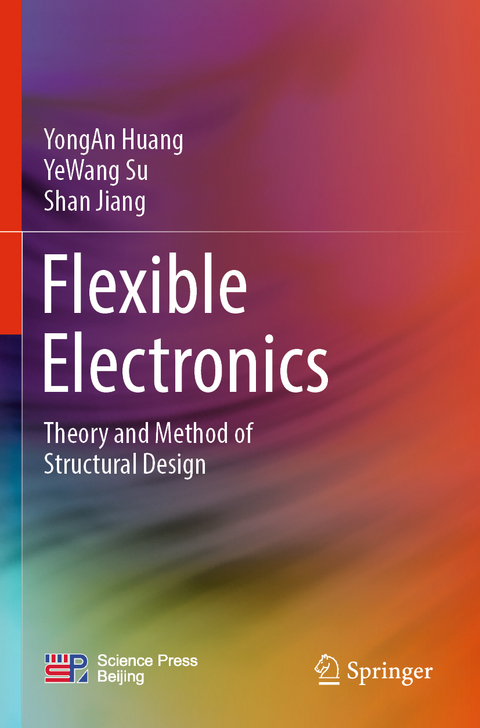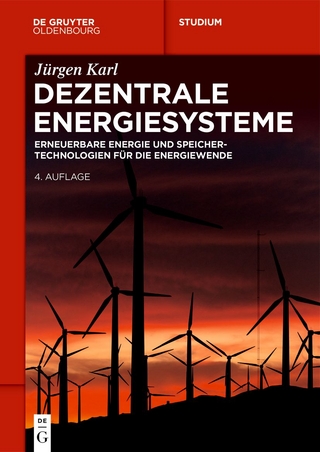
Flexible Electronics
Springer Verlag, Singapore
978-981-19-6625-5 (ISBN)
YongAn Huang received his Ph.D. degree in engineering mechanics from Northwestern Polytechnical University, Xi’an, China, in 2007. Currently, he is a Professor of Mechanical Engineering at Huazhong University of Science and Technology, the Vice Director of State Key Laboratory of Digital Manufacturing Equipment and Technology, and a winner of the National Science Fund for Distinguished Young Scholars. His research interests include the design and manufacturing for flexible electronics, curved electronics, printed display, and metamaterials. By now, he has published 3 monographs and more than 120 papers in international peer-reviewed journals like Science Advances, Advanced Materials, Advanced Functional Materials, Nature Communications, etc. Yewang Su received his Ph.D. degree in engineering mechanics from Tsinghua University, Beijing, China, in 2011. Currently, he is a Professor in State Key Laboratory of Nonlinear Mechanics, Institute of Mechanics, Chinese Academy of Sciences, Beijing, China, a winner of the National Youth Top-notch Talent Support Program, and a winner of the Hundred Talent Program in Chinese Academy of Sciences. His research interests focus on the mechanics of flexible structures and devices. By now, he has published more than 80 papers in international peer-reviewed journals like Journal of the Mechanics and Physics of Solids, Nature Communications, PNAS, Advanced Materials, etc. Shan Jiang received his Ph.D. degree in solid mechanics from the Huazhong University of Science and Technology (HUST), Wuhan, China, in 2018. He currently is a Postdoctoral Researcher at State Key Laboratory of Digital Manufacturing Equipment and Technology, HUST and a winner of the Young Scientists Fund of the National Natural Science Foundation of China. His research interests focus on the interdisciplinary research of flexible electronics and metamaterials. By now, he has published about 20 papers in international peer-reviewed journals like Advanced Materials, Advanced Functional Materials, ACS Applied Materials & Interfaces, Composite Structures, etc.
Chapter 1. Introduction of flexible electronics.- Chapter 2. Buckling of film-on-substrate.- Chapter 3. Buckling of fibers-on-substrate.- Chapter 4. Self-similar design without substrate.- Chapter 5. Self-similar design with substrate.- Chapter 6. Conformal design with rigid substrate.- Chapter 7. Conformal design with soft substrate.- Chapter 8. Deformation instability under compression.- Chapter 9. Deformation instability under stretching.- Chapter 10. Multiple neutral layer design for flexible electronics.- Chapter 11. Liquid metal for stretchable electronics.- Chapter 12. Devices and applications of flexible electronics.
| Erscheinungsdatum | 11.01.2024 |
|---|---|
| Zusatzinfo | 229 Illustrations, color; 12 Illustrations, black and white; XVII, 412 p. 241 illus., 229 illus. in color. |
| Verlagsort | Singapore |
| Sprache | englisch |
| Maße | 155 x 235 mm |
| Themenwelt | Naturwissenschaften ► Chemie ► Technische Chemie |
| Technik ► Maschinenbau | |
| Schlagworte | Applications of flexible electronics • Buckling behavior of flexible electronics • Conformal design of flexible electronics • Deformation stability of flexible electronics • Flexible electronics • Flexible Sensors • In-plane design of flexible electronics • Stretchable self-powered sensors • Stretchable self-similar design • Structural design of flexible electronics |
| ISBN-10 | 981-19-6625-7 / 9811966257 |
| ISBN-13 | 978-981-19-6625-5 / 9789811966255 |
| Zustand | Neuware |
| Haben Sie eine Frage zum Produkt? |
aus dem Bereich


